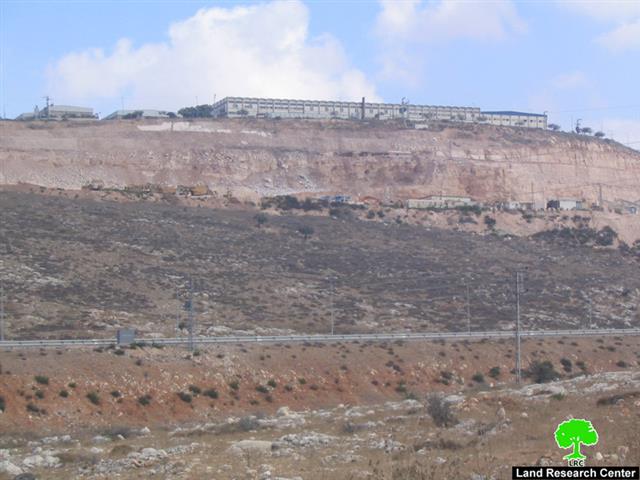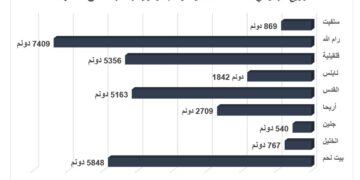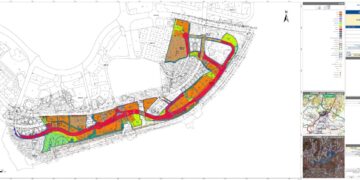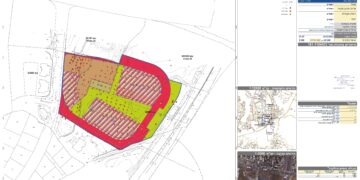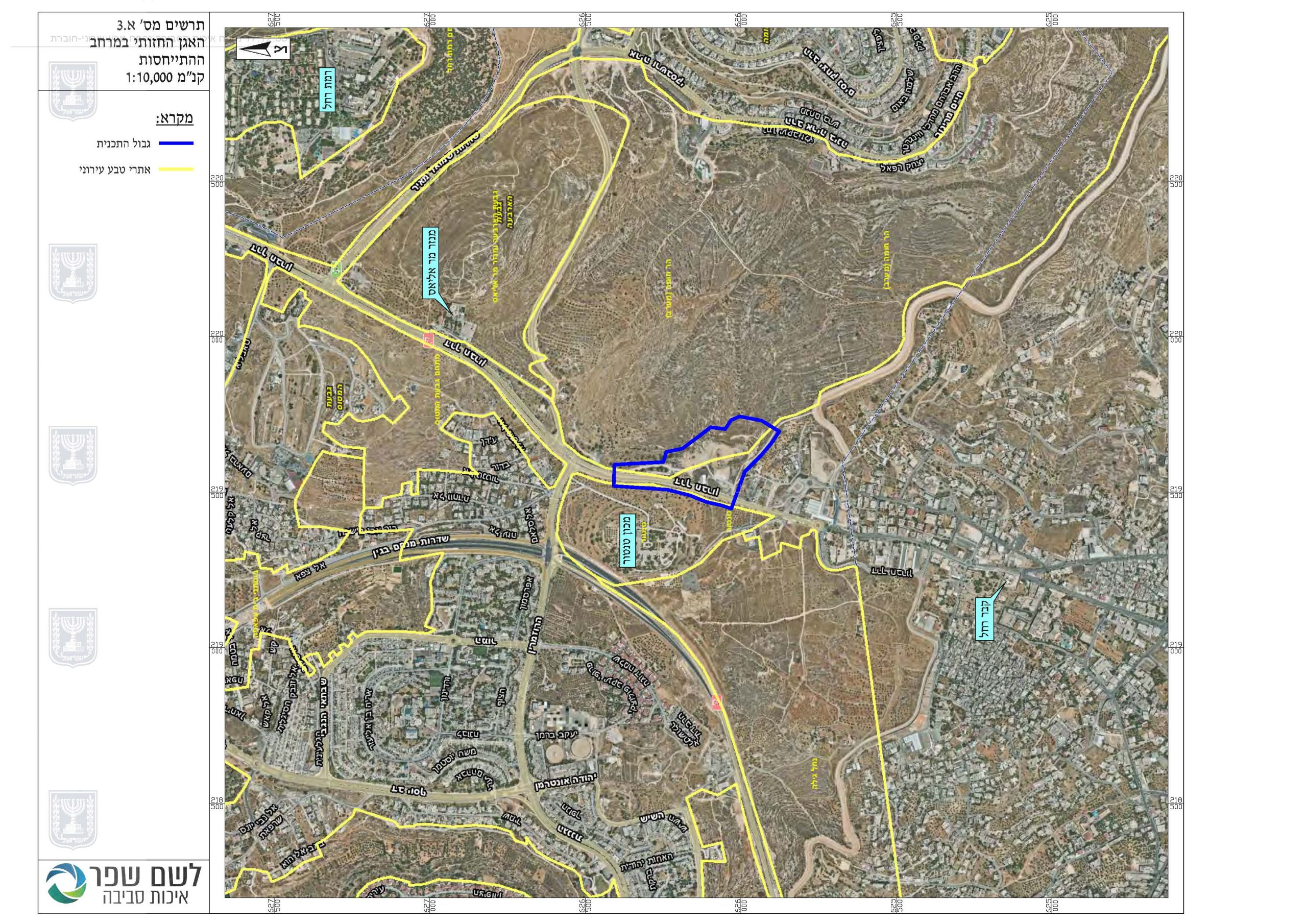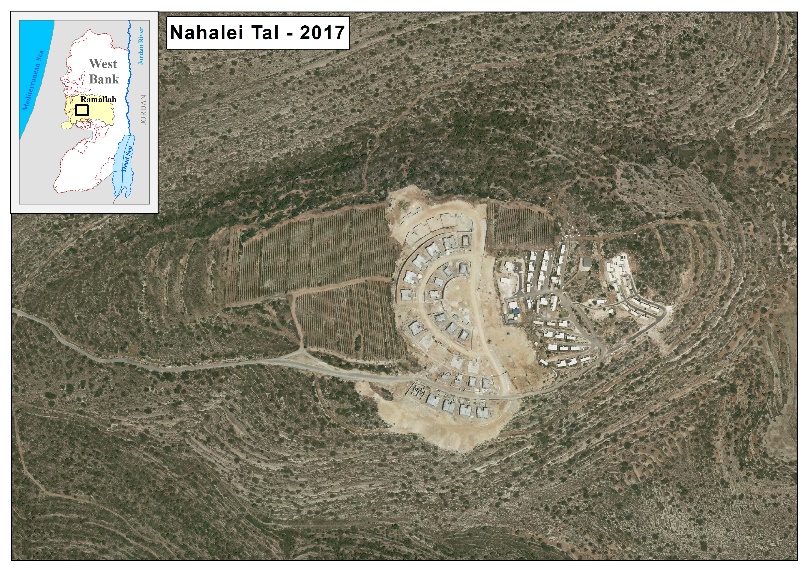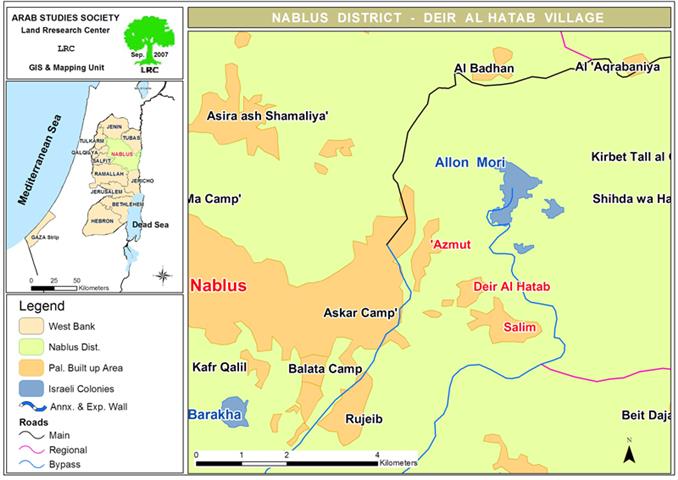(Photo 1: Barkan colony-Salfit: land leveling near the industrial zone for
the purpose of constructing more factories)
For the second running month Israeli bulldozers continue to devastate land in the vicinity of the industrial zone in Barkan colony in the western part of Salfit governorate. The undergoing works aim at leveling and preparing the land for the construction of more factories at the expense of the lands of the occupied territories. According to Israeli sources, more factories will be transferred from inside Israeli to Barkan industrial zone because of Israeli governmental incentives, which include among others: tax exemption; free infrastructure; exportation opportunities and low – paid labor. So far, about 12 dunums have been leveled in the eastern part of the colony close to bypass road number 5.
Barkan and Ariel colonies: a source of pollution
The settlement of Al Barkan was established in 1981 north of the village of Bruqin. According to the Foundation for Middle East Peace, Barkan's population in 2005 reached 1231 settlers, while its municipal area was 2720 dunums of which 349 dunums were built up area. It is an industrial settlement as it contains a number of chemical, plastic, Aluminum, Fiberglas, lead and oil factories which negatively affect Palestinian environment and nature.
In related development, at the beginning of the year 2000 the Israeli occupation authorities founded a new industrial zone in the south eastern side of the village under the name of 'Ariel's western industrial zone' specialized in oil industries. Smoke stemming from this new industrial zone pollutes air and increases the possibility of diseases.
(Photo 2: Barkan colony-Salfit: more of the land devastation for factory building )
Bruqin: a polluted village
In the village of Bruqin, for example, liquid waste and black water run near Palestinian houses especially in Al Barkuni Valley where the stream of liquid pollutants runs only 8 meters away from Palestinian houses. These liquid poisons have caused a large number of health problems in the village most important of which is cancer due to soil and crop pollution with industrial wastes from the factories. In addition, there is a number of cases of infectious skin disease due to the large concentration of mosquitoes in the vicinity of the factories and in places where its waste is dumped. The poison streams have, also, led to the death and spoilage of trees and crops located in its immediate vicinity.
Analysis made by the Palestinian Ministry of Health during the course of this year on water samples taken from school, houses and wells in Bruqin village proved the existence of biological pollution.
On the other hand, Wadi Qana has been transformed into a source of pollution as a result of discharging the waste and swage water from Israeli colonies into it. The once fertile Wadi of Qana is currently used as a cesspool and rubbish dump for all of the Israeli colonies in the area, including the industrial zones affiliated to Barkan and Ariel where a highly poisonous industrial chemical waste liquids flow into the valley from these colonies as well which has led to the destruction of the agro-biodiversity and increased desertification in the area.
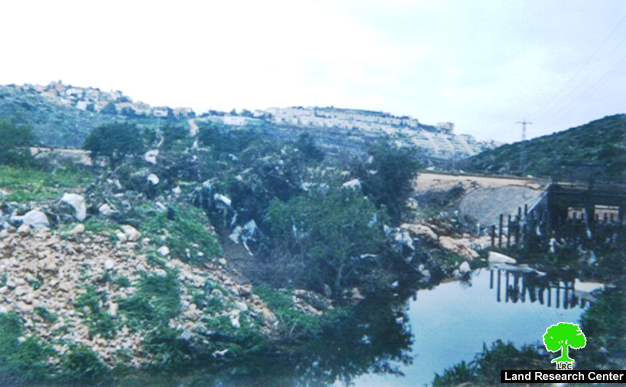
(Photo 3: Wadi Qana-Salfit: An Israeli colony at the hilltop and Sewage water at the bottom )
In addition, livestock has been eliminated to the minimum due to the absence of fresh water and suitable grazing zones. These measures are accompanied by the release of large numbers of wild pigs in the valley for the purpose of terrorizing local people and destroying their agriculture and natural wealth.
(Photo 4 & 5: Barkan colony -Salfit: some pollution – caused factories inside the industrial zone )
Bruqin: Location, population and area
The village of is located 12 km to the south west of the city of Salfit in Salfit governorate. It has a population of 4123 inhabitants (source-PCBS). Before the year 2002, most of Bruqin man power worked inside Israeli. Now, about 71% of this manpower is jobless. See Map 1
The total area of Bruqin is 13237 dunums, including 1098 dunums as built up area.
Currently, the total number of factories in Barkan and Ariel colonies is about 80. The construction of more such factories will only aggravate the environmental damage in the region.
Prepared by
The Land Research Center
LRC


